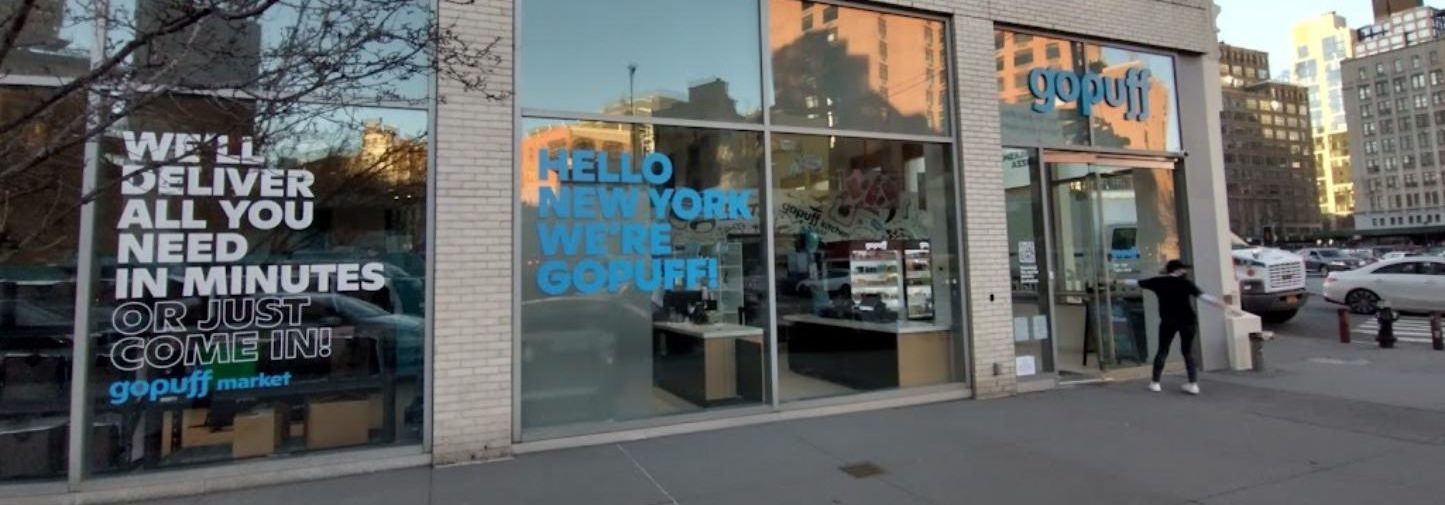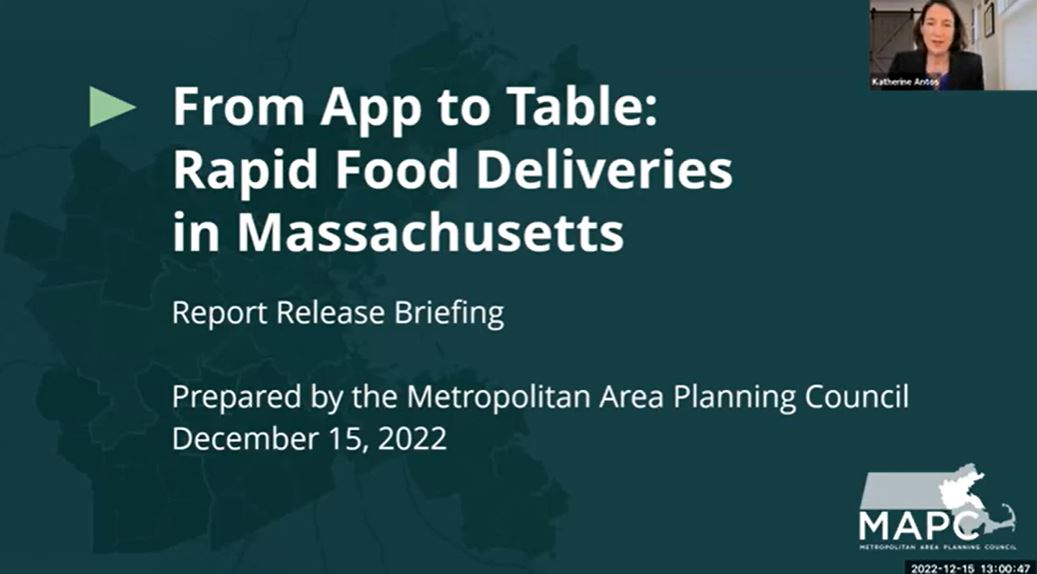From App to Table: Rapid Food Deliveries in Massachusetts
An e-commerce and transportation study by the
Metropolitan Area Planning Council
Header photo: AdobeStock #254761633
"From App to Table: Rapid Food Deliveries in Massachusetts" concentrates on the transportation, land use, and economic effects of rapid food deliveries from third-party mobile apps such as DoorDash, Grubhub, and Uber Eats, as well as fast delivery of convenience store items from mobile apps including GoPuff and Getir.
This report does not include an analysis of larger, same-day deliveries from grocery stores, but instead concentrates on smaller orders of prepared foods and convenience store items typically delivered within 15 to 45 minutes. MAPC estimates that the number of rapid food deliveries in the state most likely exceeds the number of ride-hailing trips from Transportation Network Companies such as Uber and Lyft.
MAPC puts forward potential policies that could help the Commonwealth, municipalities, and the mobile delivery platforms more sustainably manage the growth and impacts of these rapid food deliveries.
MAPC serves as a resource for continued information sharing and findings from e-commerce surveys and pilot programs and will continue to conduct research on how municipalities in Massachusetts are mitigating and managing the impacts of e-commerce. Please email [email protected] for more information or to be informed of future initiatives.
Report release briefing
On Thursday, Dec. 15, 2022 report co-authors Alison Felix, AICP, principal planner & emerging technologies specialist, and Travis Pollack, AICP, senior transportation planner, and other experts at MAPC provided a deeper dive into the research and gave an overview of best practices and policies that municipalities and the Commonwealth can undertake to better manage the effects of rapid food deliveries. Watch on our YouTube channel.

This report is a follow-up work to MAPC’s 2021 report Hidden and in Plain Sight: Impacts of E-Commerce in Massachusetts, which investigated the effects of online commerce on municipalities in the Commonwealth. It also follows MAPC’s Fare Choices research on the impacts of app-based ride-hailing in Massachusetts.
This report is aligned with the recommendations adopted in the regional plan MetroCommon 2050, including improving access and regional mobility, reducing vehicle miles traveled, enabling wealth creation and intergenerational wealth transfer, and expanding and promoting the resiliency of small businesses, particularly those owned by people of color.
In the news
The report has garnered strong media attention, including:
- Takeout Troubles (Boston Business Journal, March 22, 2023)
- Legislation Aims to Take the Measure of Traffic Impacts From App-Based Delivery Services (Streetsblog, March 14, 2023)
- Report: Food deliveries in Mass. skyrocket, and negative impacts could be coming (Boston.com, Jan 2, 2023)
- Report: Mass. food delivery trips double during the pandemic, researchers urge greener transportation options (WBUR, Dec 29, 2022)
- Food delivery drivers are clogging city streets. Can Boston fix the problem? (Boston Globe, Dec 18, 2022)

